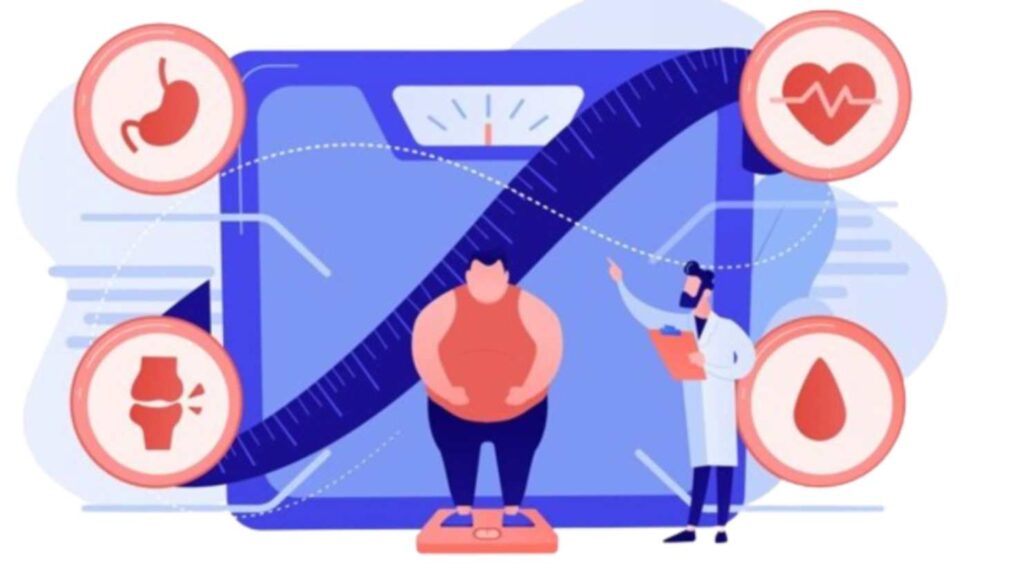In the wider realm of medical discourse, one big question is: Is obesity a disease? This question has profound implications, not necessarily of definitions, but of health care, societal perceptions, and individual well-being. Some disaffected people call it a disease, while others call it just a habitual deviation. This article teases out the hidden details surrounding this crisis, theories, outcomes, and overweight rates. Join us to unlock the depths of this digging question, which doesn’t just go to the surface, but invites you to view overweight as a disease or perhaps a complex combination of habits and health. Go deeper into the conversation of maybe.

1. Describing obesity as a disease:
Definition:
- Definitions of health changing over time
- Principles of disease
Prognosis of OMA:
- OMA’s reasons for classifying overweight as a disease
- Table of Contents: Main arguments of OMA
Termination:
- Review Summary: Is Obesity a Disease or Just a Behavior?
- Experimental exchange and consensus opinion
Grievance Count:
- Arguments of those who complain about overweight as a disease.
- Complaints about the declaration of illness
Reaction:
- The role of diagnostic investigations in the diagnosis of overweight
- Recovery and relational feedback
Details:
- End of analysis: The decision to label obesity a disease
- Integrated Care: Health or Attitude?
2. Implications of Recognizing Obesity as a Disease:

Wide-reaching Impact:
- Altered Treatment Approaches
- Ramifications in Healthcare Systems
Shifting Perceptions:
- Impact on Societal Stigma Surrounding overweight
- Addressing Prejudice in Healthcare
Disease or Behavior Abnormality:
- Weighing the Consequences of Classifying overweight
- Exploring the Thin Line Between Disease and Behavior
Healthcare Dynamics:
- Influence on Insurance Coverage and Medical Practices
- Addressing the Economic Burden of an ‘Obesity Epidemic’
Psychological Impacts:
- Effects on Individual Mental Well-being
- Breaking Down Psychological Barriers to Treatment
Conclusion:
- Navigating the Complex Terrain: Implications of Defining overweight as a Disease
- Recognizing the Broader Picture: Beyond Labels and Toward Holistic Well-being
3. Obesity and Health:

Link to Mental Health:
- Unraveling the psychological impact of living with obesity
- Unpacking the Psychological Toll of Living with overweight
Diseases mentioned:
- Unraveling the relationship between overweight and various health conditions
- Obesity increases physical problems and provokes other medical problems
Class III obesity as a contracture:
- Investigating the classification of class III obesity as contractile
- Analyzing the social and legal ramifications ofoverweight decriminalization.
- A Comprehensive Method: Filling the Vacuum Between Medical Views and Ethical Issues.
Healthcare Challenges:
- The Burden on Healthcare Systems Due to overweight-Related Ailments
- Balancing Preventive Measures with Effective Treatment Strategies
Ethical Considerations:
- Delving into the Ethical Aspects of Classifying overweight as a Disease
- Ensuring Equitable and Compassionate Healthcare Practices
Conclusion:
Unraveling the Health Complexities: The Interplay Between overweight and Overall Well-being
A Holistic Approach: Bridging the Gap Between Medical Perspectives and Ethical Considerations.
4. Debates on Healthy Obesity:

Changing Scenarios:
- Is obesity always detrimental to health?
- Understanding and publicizing the concept of ‘healthy obesity.’
Disease or Wellness:
- Implications of classifying overweight as a disease.
- Exploring the outcomes when obesity is labeled as ‘healthy.’
Questions and Answers:
- Frequently asked questions surrounding the notion of healthy overweight.
- Healthy obesity: Reality or a misleading concept?
Intriguing Narratives:
- Stories behind individuals labeled as ‘healthy’ despite their overweight.
- Is it a dream or a tangible reality?
Conclusion:
- Exploring diverse facets of overweight: Disease or a manifestation of behavior?
- Health and overweight: Balancing scientific understanding with practical considerations.
5. Addressing FAQs and Concerns:

Medical Classification of Obesity:
- Insights into how medical professionals categorize overweight.
- Examining the decision-making process and the AMA’s role in it.
Ethical and Philosophical Dimensions:
- Navigating the ethical complexities of classifying overweight as a disease.
- Managing moral aspects and ethical considerations in medical practices.
Common Queries:
- Frequently asked queries about the illness of fat.
- Removing misunderstandings and offering solutions supported by data.
Impact on Perception:
- How labeling overweight influences societal views.
- Addressing weight stigma and its impact on individuals.
Legal and Social Implications:
- The legal consequences of classifying obesity as a disease.
- Societal responses and the potential impact on individuals.
Conclusion:
Untangling the complexities: Expert opinions regarding the categorization of overweight.
Finding a middle ground between ethical issues, public opinion, and medical definitions.
Read More About Herpes on the Tongue Reveal with 7 Tactics for Relief:
Conclusion: Is obesity a disease?
In concluding our exploration into the intricate discourse surrounding the question, “Is Obesity a Disease?” it becomes evident that this matter extends far beyond a simple dichotomy. The classification of overweight as a disease or a behavioral abnormality engages us in a nuanced dialogue that considers evolving health definitions, medical endorsements, and societal perceptions.

Perceiving corpulence as a sickness conveys broad ramifications, contacting medical care elements, shame, and moral contemplations. The interaction among stoutness and wellbeing, including mental prosperity and constant infections, features the intricacy of this diverse issue. As we dig into banters on ‘solid heftiness,’ we wind up confronting questions that rise above clinical limits and dig into cultural mentalities.
Addressing frequently asked questions and concerns about the classification process unveils a landscape where medical, ethical, and societal dimensions converge. In the end, the decision to label overweight as a disease necessitates a delicate balance between medical expertise, ethical considerations, and the lived experiences of individuals grappling with this complex condition. The journey through this article prompts a deeper reflection on the relationship between health, behavior, and the societal frameworks shaping our understanding of overweight.
Is obesity always considered a disease?
No, opinions vary within the medical community. While some define overweight as a disease due to its health implications, others view it as a complex interplay of behaviors. The classification remains a subject of ongoing debate.
Can obesity be ‘healthy’?
The concept of ‘healthy obesity’ is debated. While some argue that individuals can be overweight yet maintain good health, others emphasize the potential health risks associated with excess weight. It’s essential to consult healthcare professionals for personalized advice.


Your point of view caught my eye and was very interesting. Thanks. I have a question for you.
Can you be more specific about the content of your article? After reading it, I still have some doubts. Hope you can help me.